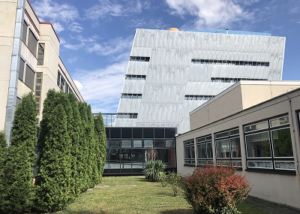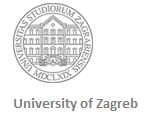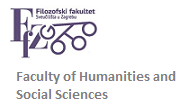Home » 9. semestar – SMJER LINGVISTIKA
Category Archives: 9. semestar – SMJER LINGVISTIKA
English Across the World (arch. 22/23)
English Across the World – syllabus 2022/2023 Course title: English Across the World Instructor: Prof. dr. Višnja Josipović Smojver (visnja.josipovic@ffzg.unizg.hr) Semester: III (winter) Status: elective (4 hours) ECTS credits: 5 Language: English Type of Classes: lectures Course requirements: No special requirements Exam: written (3 essay questions) Course description: The course describes the variability of the […]
English Across the World
English Across the World – syllabus 2024/2025 Course title: English Across the World Instructor: Prof. dr. Višnja Josipović Smojver (visnja.josipovic@ffzg.unizg.hr) Semester: III (winter) Status: elective (4 hours) ECTS credits: 5 Language: English Type of Classes: lectures Course requirements: No special requirements Exam: written (3 essay questions) Course description: The course describes the variability of the […]
Syntactic Theories
Course title: Syntactic Theories Course coordinator: Professor Irena Zovko Dinković Instructor: Professor Irena Zovko Dinković Status: elective ECTS credits: 6 Semester: 1st or 3rd (winter) Enrollment requirements: – Objectives: To introduce the students to major syntactic theories and approaches from the beginning of the 20th century to the present, and teach them about various ways […]
Sociolinguistics (L)
Course title: Sociolinguistics Course coordinator: Dr. Anđel Starčević, Assistant Professor Instructor: Dr. Anđel Starčević, Assistant Professor ECTS credits : 5 Language: English Semester: 3rd (winter) (linguistics program) Form of instruction: 2 lectures + 2 seminars Enrollment requirements: enrollment in the third semester Exam: written Course description: The course conceptualizes language as a process and a […]
Historical Sociolinguistics
Name of course: Historical sociolinguistics Instructor: Dr. Alexander D. Hoyt, senior lector (lecturer in foreign languages) ECTS points: 5 Language of instruction: English Classroom hours weekly: lecture: 1 seminar: 2 Semester: Winter Status: elective course Maximum enrolment: 20 students Course description: The goals of this course are twofold. The first goal is to introduce students […]
Pragmatics-archive
Course title: PragmaticsInstructor: Mateusz-Milan StanojevićECTS credits: 5Language: EnglishSemester: 9th (winter)Status: electiveForm of Instruction: 1 lecture + 2 seminars per weekExamination: writtenCourse description: This course deals with various issues in pragmatics, such as illocution and perlocution, various types of communicative interaction, speech acts, text functions, etc., with special emphasis on their relevance in the translation process.Objectives: […]
Sociolinguistics (arch.)
Course Title: SociolinguisticsInstructor: dr.sc. Damir Kalogjera, prof. emeritusECTS-points : 5Language: EnglishSemester: IX(winter)Status: electiveForm of Instruction: 4 lecture per weekExamination: written
Protected: STARI-Pragmalingvistika (2011/12) (en)
There is no excerpt because this is a protected post.
Historical Sociolinguistics (archive)
Name of course: Historical sociolinguisticsInstructor: Dr. Alexander D. Hoyt, senior lector (lecturer in foreign languages)ECTS points: 5Language of instruction: EnglishClassroom hours weekly: lecture: 1 seminar: 2Semester: Winter 2012/13Status: elective courseMaximum enrolment: 20 students Course description: The goals of this course are twofold. The first goal is to introduce students to the field of historical sociolinguistics, […]
Pragmatics
Course title: Pragmatics Instructors: Dr. Mateusz-Milan Stanojević; Dr. Marina Grubišić ECTS credits: 5 Language: English Semester: 3rd (winter) term of graduate studies Status: elective Form of Instruction: 1 lecture + 2 seminars per week Examination: written Course description: This course deals with issues in pragmatics, particularly locution, various types of communicational interaction, speech acts, text […]
Psycholinguistics
Course title: Psycholinguistics Lecturer: Professor Irena Zovko Dinković ECTS credits: 5 Language: English Semester: 3rd (winter) term of graduate studies Status: elective Course form: 4 hours of lecture per week Enrollment requirements: – Exam: written Objectives: introduce the students to the basic concepts of the area of study, namely the acquisition, perception and comprehension of […]
English Across the World (arch.)
Course title: English Across the World Instructor: Prof. dr. Višnja Josipović Smojver ECTS credits: 5 Language: English Status: elective (4 hours) Semester: III (winter) Exam: written Course requirements: No special requirements Course description: The course describes the contemporary varieties of English, including the newly emerged standard Englishes and major substandard ones. It deals with the […]



